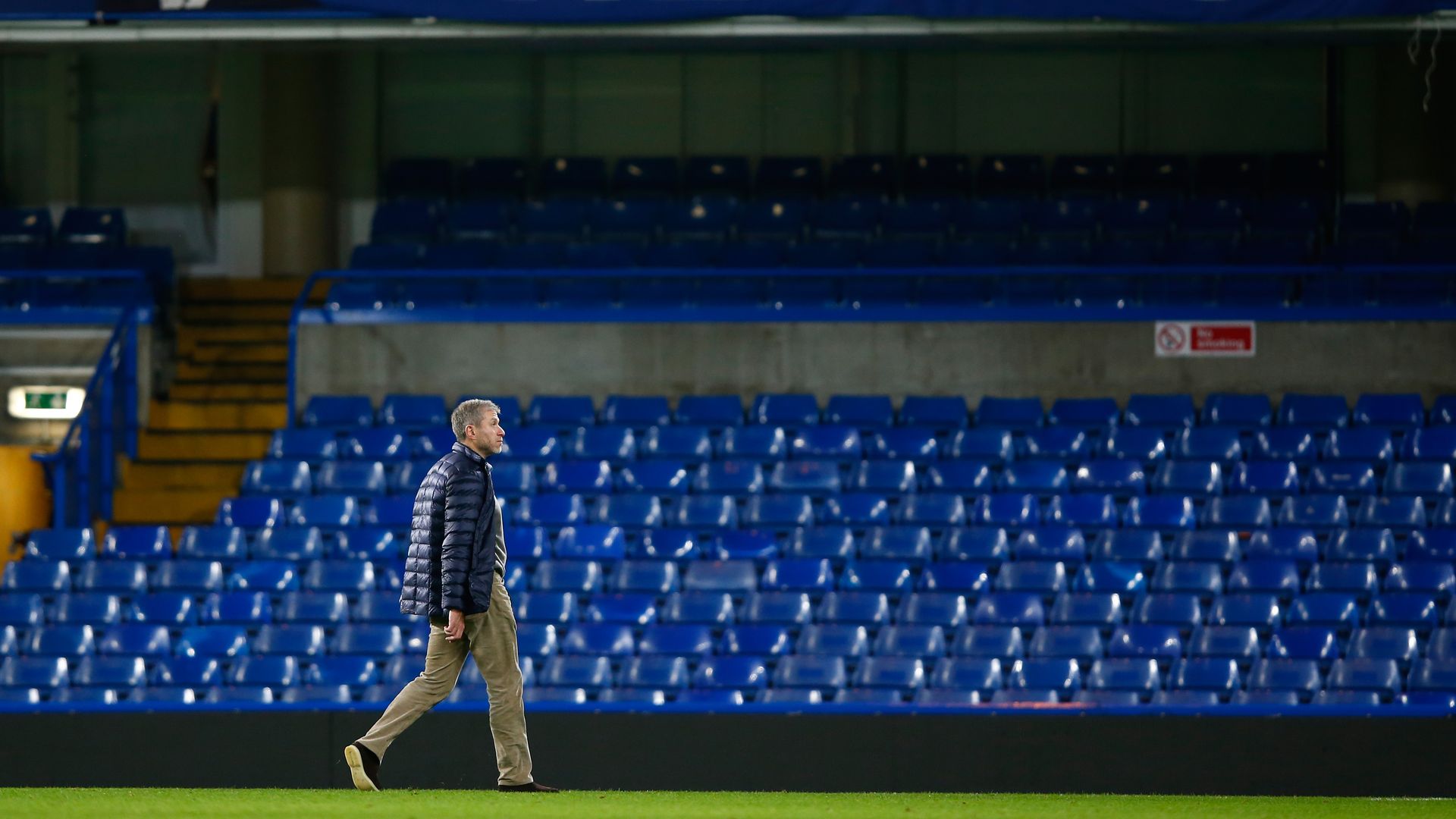Updated Mar 27, 2018 - World
Expert VoicesMay avoids taking U.K.–Russia clash to the soccer field
Add Axios as your preferred source to
see more of our stories on Google.

Chelsea owner Roman Abramovich at Stamford Bridge in London. Abramovich, a Russian oligarch, is reported to have a friendly relationship with President Putin. Photo: Clive Rose via Getty Images
